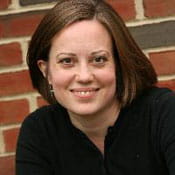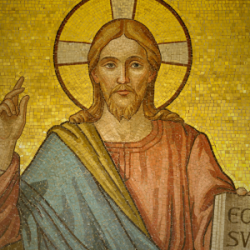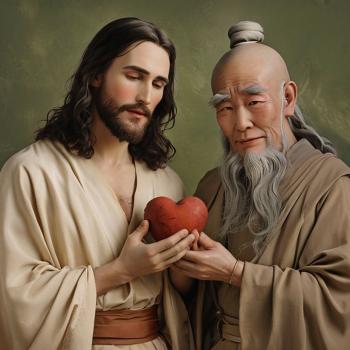Editor's Note: Below is an edited transcript of the Veritas Riff podcast. The podcast is embedded below, and the transcript follows. For more information on the series, and for other installments, go to veritasriff.org.
 The Veritas Riff is a group of friends who combine deep faith with world-class expertise in subjects ranging from politics, science, culture, business, medicine, and more. They offer their informal take on the big questions facing us all.
The Veritas Riff is a group of friends who combine deep faith with world-class expertise in subjects ranging from politics, science, culture, business, medicine, and more. They offer their informal take on the big questions facing us all.
Sexual identity has split the Christian Church like no other issue has in recent years. Entire denominations, and the relationships between churches and the broader culture, are fracturing around questions like "Should gay priests be ordained?" and "Should gay marriages be recognized?"
But what if this very thing that is the source of so much contention, this thing called "sexual identity," doesn't really exist? Or what if it doesn't exist, at least, in the way that we Christians have been brought up to believe? How would that change how we wrestle with these conflicts? Jenell Paris, a cultural anthropologist teaching at Messiah College, has posed these questions and provided her own answer in her recent book, The End of Sexual Identity. Her book makes the historical argument that the very concept of a homosexual versus heterosexual identity is a relatively modern invention.
 Can you say more about that historical invention process?
Can you say more about that historical invention process?
Let's start by looking at a particular historical moment. In Colonial America, people who engaged in same-sex sex were labeled "sodomites." So the label for a certain sexual practice was thoroughly religious and it wasn't a whole identity category. You could move in and out of the category "sodomite" depending on your behavior. Probably the more important identity category is gender: being a man or woman. In the 19th century, medical sex researchers created the categories "heterosexual" and "homosexual" in an attempt to make sense of proper or deviant sexuality. Those categories have shifted over time. They have meant different things. We now have different words like lesbian, gay, and bisexual added to the repertoire. But the concept that sexual feelings are linked to identity is a 19th-century medical concept.
Was it also the 19th century when these labels gained currency in the broader culture?
Those didn't really influence the general public until the 1930s, when those words became a more common part of American discourse. So in thinking about even my own family, just to take an example, we could say that my grandfather who came of age in the 1910s probably didn't have a sexual identity. He was a fundamentalist minister, but he was a man, he was a Christian, and his sexuality got wrapped around those concepts, not his identity understood in terms of his sexuality.
My parents remember getting a sexual identity in the 1960s. So these ideas came a little late for them but they both can talk about realizing, "Oh, I am heterosexual; there is such a thing and I am going to claim one of those labels for myself." I, growing up in the ‘80s, always had a sexual identity. So we can see across the 20th century there has been a deeper and deeper entrenchment of that concept in American self-understandings.
And these changes correspond to how different generations have understood the role and meaning of sex in human life?
Right. If anything, sex was considered a more communal element of life. It had to do with reproduction, with family, with extended family, and with church and community. Sexual identity categories radically individualized the meaning of sex in the human experience. So the meaning of sex is now located primarily within the individual and her private, innermost feelings.




